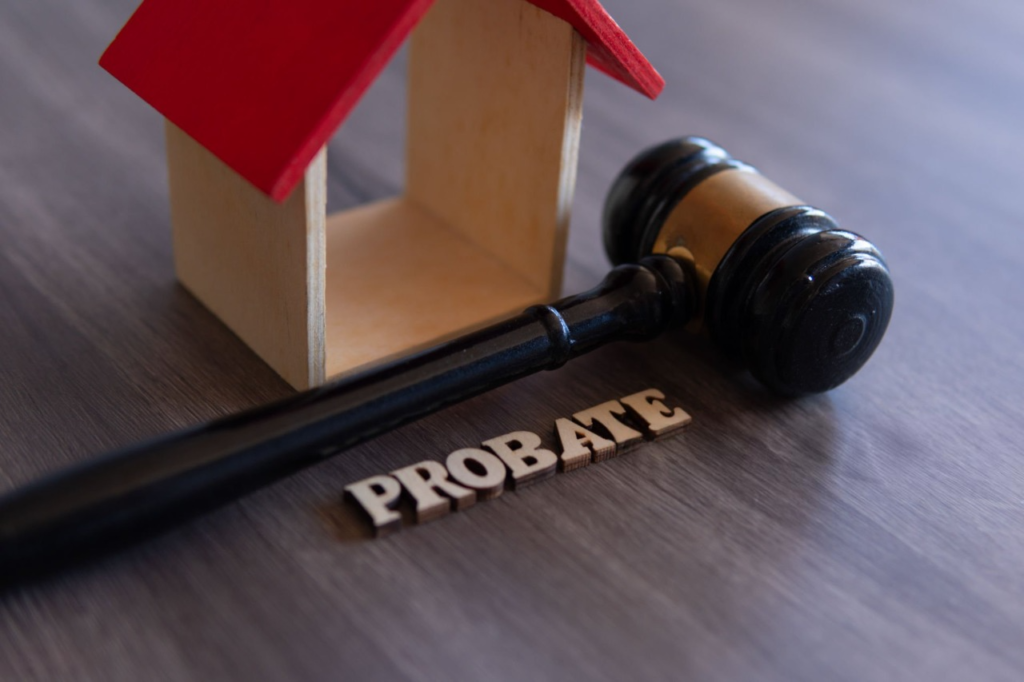
When a loved one passes away, handling their estate can be an emotionally challenging and complex process.
The probate process ensures that the deceased’s assets are distributed correctly, either in accordance with their will or the intestacy laws if no valid will exists. Understanding how probate works in the UK is crucial to ensuring a smooth transition of assets and legal responsibilities.
What is the Probate Process?
Probate is the legal procedure required to administer a deceased person’s estate, ensuring that debts are cleared, and the remaining assets are distributed to the rightful beneficiaries.
The process is typically managed by the executor of the will.
Want to understand this role better? Read our detailed guide on the duties of an executor of a will.
However, in cases where there is no will, an administrator is appointed by the court to manage the estate.
The requirement for probate largely depends on the nature and value of the assets left behind.
If assets are held jointly with a surviving spouse or partner, they may be transferred automatically without the need for probate.
However, if the deceased solely owned property, financial accounts, or other significant assets, probate is usually required.
How to Start the Probate Process
The probate process starts with determining whether it is needed.
The next step involves gathering the necessary documents, including the death certificate, the will, and a detailed inventory of the deceased’s assets and liabilities.
Once these documents are assembled, an application for a Grant of Probate (if there is a will) or Letters of Administration (if no will exists) must be submitted to the UK government’s probate service.
This application can be completed online or via a paper form.
In cases where the estate is subject to inheritance tax, an inheritance tax return must be completed before probate is granted.
The tax liability depends on the value of the estate and whether it exceeds the current tax free threshold.
Not sure where to start? Contact probate solicitors for step-by-step support.
Probate Process Step by Step
- Determine if Probate is Required: Estates with minimal assets may not require probate. If assets were jointly owned, they may pass automatically to the surviving owner without probate.
- Gather Key Documents: Obtain the death certificate, any existing will, and compile a comprehensive list of the deceased’s assets and debts.
- Assess Estate Value and Liabilities: Calculate the value of the estate, including savings, property, investments, and any outstanding debts.
- Apply for Probate: Executors or administrators must complete the required probate application forms and inheritance tax returns.
- Settle Inheritance Tax: If applicable, inheritance tax must be paid before the Grant of Probate is issued.
- Receive Grant of Probate: Once approved, this legal document allows the executor or administrator to manage and distribute the estate.
Still waiting on a grant? Learn how to track a probate application in the UK.
- Settle Debts and Taxes: Before distributing assets, outstanding debts, mortgages, and taxes must be settled from the estate’s funds.
- Distribute the Estate to Beneficiaries: Once all obligations are met, assets are distributed as per the will or intestacy laws.
Whether you’re applying for probate or unsure where to start, our expert team is here to guide you through every step of the process. Request a free probate consultation today.
How Long Does the Probate Process Take?
The timeframe for probate varies depending on the complexity of the estate.
On average, the probate process in the UK takes between six months and a year. However, estates that involve complex assets, legal disputes, or unpaid taxes may take longer.
A straightforward estate with a valid will, minimal debts, and no disputes can be settled within six months.
However, larger estates with multiple assets, inheritance tax liabilities, or legal complications may take over a year to resolve.
Common Challenges in the Probate Process
1. Locating the Will
If the deceased left a will, the process is generally more straightforward.
However, finding the most recent valid will can sometimes be a challenge.
It is important to check whether the will is registered with a solicitor or stored in a secure location.
2. Managing Inheritance Tax
One of the biggest hurdles in probate is inheritance tax.
Estates valued above the current tax-free threshold must pay 40% tax on the portion that exceeds the limit.
Executors must ensure timely tax payments to avoid penalties.
3. Resolving Disputes Among Beneficiaries
Family disputes can arise over asset distribution, especially if the will is contested or there are disagreements among beneficiaries.
Seeking professional legal advice can help mitigate conflicts and ensure a fair resolution.
Concerned about family disagreements? Explore insights on how contentious probate can be resolved.
4. Handling Debts and Liabilities
The estate is responsible for settling outstanding debts before distributing assets. This includes mortgages, loans, and unpaid bills.
If the estate lacks sufficient funds, debts may need to be settled in a specific order of priority.
5. Dealing with Complex Assets
Properties, businesses, and international assets can complicate the probate process.
Professional probate solicitors can assist in managing these complexities effectively.
Do You Need Solicitor Help for the Probate Process?
Navigating probate can be challenging, especially if you are unfamiliar with legal and financial processes.
Seeking professional assistance can streamline the process and reduce stress.
At Probate Central, we specialize in helping families manage the probate process efficiently.
Our expert team ensures that all legal requirements are met, taxes are handled correctly, and assets are distributed smoothly.
Need help navigating the probate process?
Our experienced probate specialists are here to guide you every step of the way.
Contact us for expert support.
Don’t navigate probate alone, let Probate Central guide you every step of the way!
